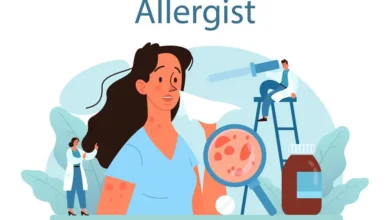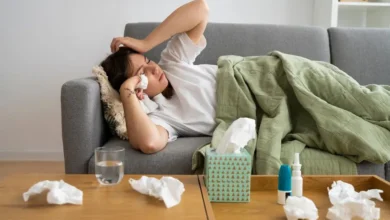Hangxiety: How to Overcome Hangover Anxiety
Alcohol for Hangxiety can cause anxiety.

You wake up from a deep slumber with a pounding headache that feels like a jackhammer inside your skull, a queasy stomach that churns like a stormy sea, and a heavy sense of dread that hangs over you like a dark, ominous cloud. As you struggle to piece together the hazy events of last night, the overwhelming waves of guilt and anxiety come crashing down on you like a relentless tsunami, threatening to engulf you in their turbulent depths. Hangxiety, a debilitating combination of hangover symptoms and intense anxiety, grips you after a night of excessive drinking.
But what is the true nature of anxiety? Why do we find ourselves inexplicably plagued by feelings of melancholy and unease after engaging in alcohol-fueled revelry? In this comprehensive article, we embark on a journey into the complex realm of hangover anxiety, delving deep into its intricacies and offering valuable insights and practical strategies for overcoming this all-too-familiar affliction. So grab a glass of water, get comfortable, and let us navigate through the murky waters of hangxiety together, armed with knowledge and resilience.
Causes of hangover anxiety
Hangxiety, also known as hangover anxiety, is a commonly experienced but frequently ignored occurrence. The reasons behind hangover anxiety are multifaceted, with one of the main causes being the chemical imbalances in the brain that result from alcohol consumption. When the body processes alcohol, it disrupts the equilibrium of neurotransmitters like serotonin and GABA, leading to sensations of uneasiness and nervousness. Moreover, the physical manifestations of a hangover, such as dehydration and sleep deprivation, can worsen feelings of anxiety.
Many people compare the sensation of anxiety to an overwhelming sense of dread or impending disaster. The amalgamation of physical unease from the hangover and emotional turmoil from anxiety can produce a potent blend of negative emotions. Feelings of guilt or remorse about actions taken while intoxicated can exacerbate this escalated state of anxiety, intensifying sensations of uneasiness and distress. It is crucial for individuals grappling with hangover anxiety to engage in self-care practices and seek assistance if necessary to effectively navigate through these challenging emotions.
Poor sleep
Poor sleep can lead to a phenomenon known as hangxiety, where individuals experience heightened anxiety and stress after a night of restless sleep. People often describe this feeling as a combination of hangover symptoms and general anxiety, resulting in an overwhelming sense of unease. The lack of proper restorative sleep can exacerbate existing mental health conditions and make it difficult for the brain to regulate emotions effectively. In essence, hangxiety is like carrying the weight of a restless night into the day, clouding one’s thoughts and emotions with a sense of impending doom.
What does anxiety feel like? It manifests as a persistent feeling of unease or nervousness that lingers throughout the day, often accompanied by physical symptoms such as headaches, fatigue, and irritability. This cocktail of exhaustion and anxiety can impair cognitive function, making it challenging to concentrate or make decisions effectively. As such, addressing poor sleep habits and prioritising quality rest becomes essential in managing hangxiety and preventing its detrimental effects on mental well-being.
Anxiety manifests not only as physical discomfort but also as emotional turmoil, intensifying feelings of dread or worry along with the grogginess and malaise that accompany inadequate rest. To combat this debilitating cycle, adopting healthy bedtime routines, ensuring adequate relaxation before bed, and seeking professional help when necessary can all contribute to breaking free from the grip of anxiety induced by poor sleep patterns.

Social anxiety
Imagine waking up after a night out with friends and feeling more than just a headache and tiredness. You’re experiencing hangxiety that dreaded combination of a hangover and anxiety. Your mind is racing with thoughts about how you may have embarrassed yourself or said something wrong. You feel overwhelmed by the fear of judgment or criticism for your actions while under the influence.
Hangxiety can be an intense experience, causing you to question your self-worth and shake your confidence to its core. It’s like a heavy weight on your chest, making it hard to breathe as you replay every moment from the night before in excruciating detail. The unease lingers, preventing you from fully enjoying social interactions and creating a vicious cycle of avoidance and isolation.
Dealing with hangover anxiety requires self-compassion and understanding that everyone makes mistakes. It’s essential to practice mindfulness techniques and focus on the present moment rather than dwelling on past events. Seeking support from loved ones or a therapist can also help you navigate these overwhelming feelings and build resilience against future bouts of anxiety. Understanding that it’s okay not to be perfect can alleviate some of the pressure we put on ourselves in social situations fueled by alcohol-induced anxiety.
Alcohol detox
anxiety, Have you ever experienced anxiety? It’s that overwhelming feeling of anxiety and unease that often accompanies a hangover. What does anxiety feel like? It’s a mix of regret, shame, and worry, all amplified by the physical effects of alcohol withdrawal. For many people, hangover anxiety can be more distressing than the physical symptoms themselves. This unique phenomenon is a reminder of the impact alcohol has on our mental health, not just our bodies.
Alcohol detox isn’t just about cleansing your body; it’s also about addressing the psychological effects of heavy drinking. Hangover anxiety is a sign that your brain chemistry may be out of balance due to prolonged alcohol consumption. Taking steps to detoxify not only helps your body recover but also allows your mind to heal from the damaging effects of excessive drinking. Consider seeking support from healthcare professionals or support groups to navigate the emotional aspects of alcohol detox and pave the way for a healthier future free from hangxiety and its grips on your well-being.
Emotional withdrawal
Have you ever experienced hangxiety—an overwhelming feeling of anxiety and unease after a night of heavy drinking? Hangover anxiety, or hangxiety, is a real phenomenon that can leave you feeling emotionally withdrawn and mentally drained. It’s like your mind is on overdrive, replaying past events and creating worst-case scenarios.
The sensation of hangxiety is unique to each individual, but it frequently involves feelings of guilt, shame, and regret. You may find yourself withdrawing from social interactions as you try to process the events from the night before. You use this emotional withdrawal as a coping mechanism to protect yourself from additional stress and discomfort. However, it’s important to remember that it’s okay to reach out for support during these times.
Hangxiety causes emotional withdrawal, so it’s crucial to practice self-compassion and forgiveness. Recognize that everyone makes mistakes, and that tomorrow is a new day filled with opportunities for growth and healing. Engaging in activities that bring you joy and relaxation can help alleviate the symptoms of hangover anxiety. Remember, emotional withdrawal is a temporary state; with time and self-care, you can emerge stronger than before.
Dehydration
Many of us are familiar with the dreaded feeling of anxiety—the combination of a hangover and anxiety. This unpleasant sensation often occurs after a night of heavy drinking, causing dehydration in the body. Dehydration is not only responsible for physical symptoms like headaches and fatigue, but it can also exacerbate feelings of anxiety and unease.
What does hangxiety feel like? Imagine waking up with a pounding headache, a dry mouth, and an overwhelming sense of worry or dread. These physical symptoms, coupled with increased levels of anxiety, can make it difficult to function the next day. Hangover anxiety, or hangxiety, is a unique form of discomfort that stems from both alcohol-induced dehydration and the effects alcohol has on neurotransmitters in the brain.
Understanding the link between dehydration and hangxiety is crucial to preventing these debilitating symptoms. Staying hydrated before, during, and after drinking alcohol can help mitigate the negative effects on both your body and mind. Prioritizing self-care strategies, such as consuming electrolyte-rich drinks or eating hydrating foods, can help replenish lost fluids and promote overall well-being during times of indulgence.
Medication use
Medication use can play a critical role in managing hangxiety, a unique phenomenon characterised by feelings of anxiety and unease experienced after a night of heavy drinking. For those who have encountered hangxiety, the experience can be overwhelming and distressing. Often described as a combination of lingering physical discomfort and intense mental unease, hangxiety can make even routine tasks seem insurmountable.
One potential solution that has gained attention is the use of medications to alleviate hangover anxiety symptoms. While traditional remedies like rest, hydration, and healthy eating habits are important, some individuals may benefit from pharmaceutical interventions to address the specific symptoms associated with hangover anxiety. By working with healthcare professionals to explore safe and effective medication options, individuals dealing with hangxiety can take proactive steps towards managing their symptoms and improving their overall well-being.
In conclusion, medication use for hangxiety represents an evolving area of research and treatment options for individuals grappling with this challenging condition. By understanding what hangxiety feels like and exploring innovative approaches to addressing its underlying causes, individuals can take an active role in enhancing their mental health and quality of life. As researchers continue to investigate the complex interplay between alcohol consumption, mood disorders, and medication responses, there is hope for new breakthroughs that could offer relief for those struggling with hangover anxiety.
Regret or worry
Regret and worry are two sides of the same coin, weighing heavily on our minds and souls. Regret often comes after the fact—a bitter realisation that we could have done things differently. It lingers like an unwanted guest, whispering, if only in our ears. On the other hand, worry is a future-focused emotion, driven by uncertainty and fear. It’s like carrying a heavy burden with no end in sight.
The intersection of regret and worry gives birth to a particularly potent cocktail known as hangxiety—the dread that follows a night of indulgence. What does anxiety feel like? It’s a swirling mix of regret for past actions and worry about how they may impact the future. The weight of both emotions can be suffocating, leaving us trapped in an endless cycle of self-doubt and anxiety. Hangover anxiety serves as a stark reminder that our past choices can haunt us long after the party is over.

Tips for managing anxiety symptoms
Hangxiety can feel like a heavy cloud hovering over you, casting a shadow of doubt and unease on your day. These symptoms often include feelings of guilt, shame, and worry about the events of the night before. To manage anxiety effectively, it is essential to practice self-compassion and forgiveness. Instead of dwelling on the past, focus on the present moment and remind yourself that everyone makes mistakes.
Engaging in gentle physical activity, such as going for a walk or practicing yoga, can help alleviate the physical symptoms of anxiety by releasing endorphins and promoting relaxation. Additionally, connecting with a friend or loved one for support can provide comfort and reassurance during this challenging time. Remember that hangover anxiety is temporary, and taking small steps towards self-care can make a significant difference in how you feel both mentally and physically.
As you navigate through the discomfort of hangxiety, try to avoid consuming excessive caffeine or alcohol to cope with these feelings. Instead, prioritize nourishing your body with hydrating fluids like water or herbal tea, as well as nutritious foods, to replenish your energy levels. Setting boundaries around alcohol consumption and practicing moderation can also prevent future occurrences of anxiety. By embracing mindfulness techniques and focusing on self-care practices, you can better manage these distressing symptoms and cultivate a sense of peace within yourself.
The importance of self-care and rest
Imagine waking up after a night of drinking feeling not only physically drained but also mentally overwhelmed. We refer to this phenomenon as hangxiety, which describes the anxiety and unease that frequently accompany a hangover. It’s important to recognize that self-care and rest play crucial roles in managing anxiety, as giving your body and mind the care they need can help alleviate these unpleasant symptoms. Taking time to prioritize self-care practices such as mindfulness, exercise, and adequate sleep can make a significant difference in how you feel after a night out.
Understanding what hangxiety feels like can help you better address its effects on your mental well-being. It’s not just about physical discomfort—it’s also about navigating the emotional rollercoaster that comes with it. Hangover anxiety can manifest as intense feelings of worry, fear, guilt, or regret, making it challenging to fully relax and unwind. By acknowledging the impact of hangxiety on your overall health and well-being, you can take proactive steps towards incorporating self-care routines and restful activities into your lifestyle to help manage these distressing emotions effectively.
Hydration and nutrition for recovery
Hydration and nutrition play a crucial role in aiding recovery from the physical and mental effects of excessive alcohol consumption. Dehydration is a common side effect of drinking alcohol, which can exacerbate feelings of fatigue, headaches, and overall malaise. By prioritizing hydration with water or electrolyte-rich beverages, individuals can replenish lost fluids and aid the body in flushing out toxins.
After a night of drinking, focusing on nutrient-dense foods like fruits, vegetables, lean proteins, and whole grains can help restore essential vitamins and minerals. These foods provide the necessary fuel for the body to repair tissue damage and support overall recovery. Additionally, incorporating sources of omega-3 fatty acids, such as fish or nuts, can help reduce inflammation in the body, alleviating symptoms of hangxiety, a term that describes feelings of anxiety or low mood experienced after heavy alcohol consumption. By nourishing both the body and mind with appropriate hydration and nutrition strategies post-drinking, individuals can expedite their recovery process and bounce back feeling refreshed both physically and mentally.
Seeking support and professional help when needed
Seeking assistance and expert support when dealing with hangxiety, also known as hangover anxiety, is extremely important in effectively handling the intense emotions that often come with it. Hangxiety can be a combination of physical discomfort and overwhelming emotional turmoil, causing feelings of anxiety and unease following a night of drinking. Recognizing the symptoms of anxiety and taking proactive steps to seek help can prevent it from escalating into more severe mental health issues. Professional guidance can equip individuals with the necessary tools and strategies to navigate through these difficult emotions successfully.
Realizing that anxiety is a common occurrence and not dismissing or overlooking it is crucial. Seeking help from loved ones, friends, or mental health professionals can provide the essential validation and support needed to manage these emotions. By reaching out for assistance when necessary, individuals can develop healthy coping mechanisms to address hangover anxiety without resorting to harmful behaviors. Remember that asking for help showcases strength, not weakness, as it demonstrates self-awareness and a dedication to enhancing one’s mental well-being.
Conclusion: Overcoming anxiety with proactive strategies
In the battle against hangxiety, proactive strategies are essential for reclaiming control over our mental well-being after a night of indulgence. Instead of letting the looming cloud of regret and anxiety overshadow your day, consider implementing mindfulness practices to ground yourself in the present moment. Engaging in calming activities such as yoga or meditation can help soothe racing thoughts and promote a sense of inner peace.



